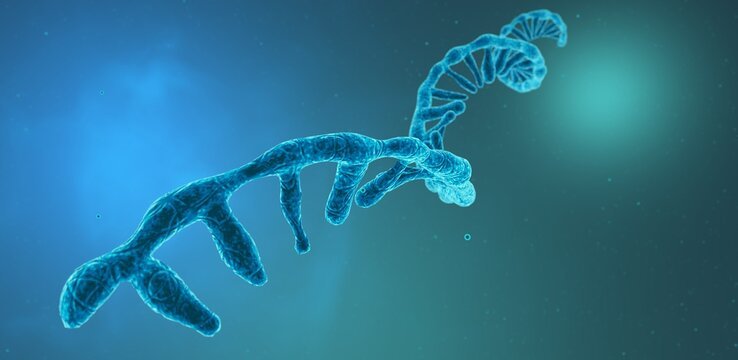
Image credit: shutterstock
A research team from the Cancer Science Institute of Singapore (CSI Singapore) at the National University of Singapore (NUS) has successfully harnessed artificial intelligence (AI) and deep-learning techniques to model atomic-level RNA 3D structures from primary RNA sequences.
Called DRfold, this novel AI-based method improves the accuracy of RNA models by more than 70 percent, compared to traditional approaches.
It has been estimated that targeting RNAs with small molecules will expand the drug design landscape exponentially, compared to traditional protein-targeted drug discovery. Accordingly, RNA biology and its applications in developing new therapeutics represent a critical emerging field, garnering significant academic and industry investment worldwide.
Moving forward, the team envisions extending their AI strategy to encompass protein-RNA interactions, an area where reliable AI approaches for high-quality protein-RNA complex structure prediction are currently absent. Such tools are highly relevant for RNA function annotation and RNA drug discovery.
In addition, the team hopes to further improve DRfold’s accuracy in single-chain RNA structure prediction. One of the inherent barriers stems from the limited availability of experimental RNA structures, which impacts the accuracy of the deep learning models, especially for large-sized RNAs (approximately more than 200 nucleotides). Novel strategies and ideas are needed to break through the bottleneck of high-accuracy RNA structure predictions, and the researchers are currently working on it with encouraging progress.




